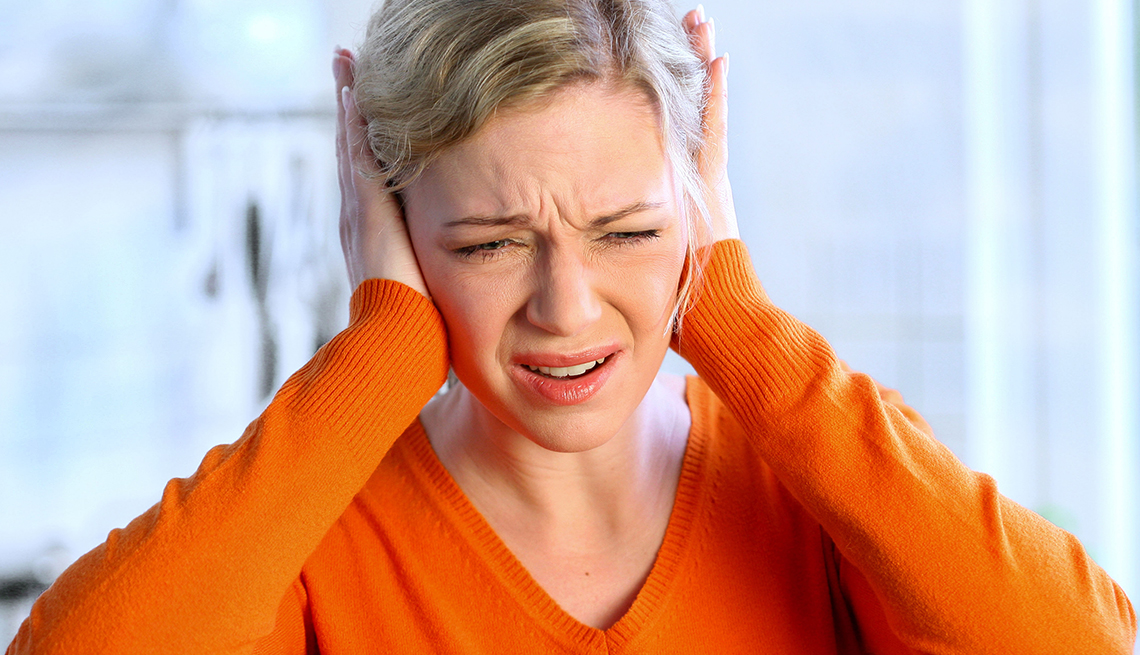
Tinnitus is the perception of a ringing or buzzing sound in one or both ears without outside noise. When it occurs after a blow to the head, concussion, or other trauma, it’s known as post-traumatic tinnitus. This condition is more common than many realize and can be a direct consequence of a traumatic brain injury (TBI), even a mild traumatic brain injury (mild TBI). It can manifest as high-pitched ringing, buzzing, or pulsatile noise.
Up to 53% of people with TBI develop tinnitus. Not only direct mechanical or noise-related trauma but also neck injuries and emotional trauma can cause it. The kind of tinnitus after a head injury may signal underlying auditory or neurological issues that need immediate attention. Certain forms, like pulsatile tinnitus, may signal serious conditions like vascular abnormalities.
Tinnitus audiologists diagnose and help manage post-traumatic tinnitus. They assess the severity and characteristics of the sound and check for associated hearing loss. Before seeing one, you can prepare by understanding the causes, symptoms, and treatment options of post-traumatic tinnitus. In this blog, we’ll walk you through important things to know about tinnitus following a head injury.
Tinnitus Following a Concussion Is Typical
After a head injury, especially from contact sports, car accidents, or falls, it’s not unusual to experience tinnitus. The trauma can affect multiple parts of the ear and brain, especially the inner ear, middle ear, and auditory nerve. Even a mild concussion can produce tinnitus symptoms, including ringing, hissing, or clicking sounds, sometimes in one ear or both.
Trauma-associated tinnitus has a multifactorial nature and can result from one of the following:
- Direct damage to auditory pathways
- Neuroplastic changes in the central nervous system
- Psychological factors such as stress and anxiety
The severity and persistence of its symptoms can vary widely among individuals, often correlating with the extent of the brain injury and the presence of comorbid conditions.
Post-traumatic tinnitus may appear right after the injury or develop gradually. It often occurs alongside hearing loss, balance issues, or other auditory disruptions. These TBI symptoms are your body’s signal that a deeper evaluation is necessary.
What It Sounds and Feels Like
Tinnitus caused by head trauma doesn’t always sound the same. Some describe it as high-pitched ringing, others hear musical tinnitus, buzzing, or rhythmic whooshing. For many, the persistent ringing becomes worse in quiet environments or when trying to sleep. Some may also report noise sensitivity, where loud noises feel more intense or even painful.
Traumatic Brain Injury
TBI affects brain function and may disrupt auditory processing, leading to subjective tinnitus, the most common type, where only the person affected hears the sound. In severe cases, especially those involving skull fractures or vascular deformities, tinnitus may be part of broader brain damage involving carotid dissections or arteriovenous malformations, which require specialized care.
Get Medical Help Right Away
Prompt medical evaluation following a head trauma is crucial. Tinnitus can be the first sign of brain injury or other serious damage. Do not dismiss it, and be sure to look out for the following warning signs.
Warning Symptoms
After a head injury, seek immediate care if you notice:
- Sudden or worsening hearing loss
- Tinnitus worsening over time
- Dizziness or balance issues
- Severe headaches or other symptoms such as vision problems
- Auditory issues only on one side
- Trouble concentrating or memory lapses
These may indicate complications such as labyrinthine concussion, ossicular chain disruption, or deeper auditory nerve damage.
Types of Post-Traumatic Tinnitus
Tinnitus that follows a head injury can take on different forms depending on the location and type of trauma. Understanding these variations helps tailor treatment and set realistic expectations for recovery.
Neurological
This type results from damage to the brain or auditory nerve, affecting how the brain interprets sound waves. It often involves subjective tinnitus. In many cases, it reflects disrupted neural pathways caused by TBI or concussion.
Objective
Rarely, a doctor can hear the tinnitus through a stethoscope. This may point to vascular abnormalities, such as carotid cavernous fistulas or other vascular deformities.
Subjective
This is the most common, where only the patient hears the ringing, buzzing, or clicking. It’s often linked with
sensorineural hearing loss or trauma-associated tinnitus. Emotional distress and noise sensitivity tend to make subjective tinnitus worse over time.
Somatic
Linked to neck injuries or musculoskeletal disorders, somatic tinnitus worsens with head or jaw movement. It often overlaps with TMJ disorders or muscle and joint dysfunction. Some patients notice it more after posture changes or physical exertion, especially in the neck and shoulders.
Diagnosing Post-Traumatic Tinnitus
Diagnosis includes a full ear exam, hearing tests, and imaging (MRI or CT) to look for middle ear, inner ear, or brain abnormalities.
Scheduling a
Toronto hearing test can help identify whether the root cause is related to auditory nerve damage, sensorineural loss, or middle ear dysfunction.
Causes of Tinnitus From Head Trauma
Below are common head-related injuries that can cause tinnitus.
TMJ Disorder
Temporomandibular joint (TMJ) dysfunction is common after head or neck injuries, especially if the jaw was part of the impact. It can refer pain and tinnitus symptoms to the ears.
Sensorineural Hearing Loss
Trauma may damage hair cells in the inner ear, leading to sensorineural hearing loss, often accompanied by chronic tinnitus.
Muscle and Joint Dysfunction
Injuries to the neck or jaw muscles can affect nearby nerves and tissues, resulting in somatic tinnitus. These musculoskeletal disorders may also interfere with sound perception.
Meniere’s Syndrome
Meniere’s syndrome can sometimes develop or worsen after head trauma, leading to ringing, vertigo, and hearing loss due to excess fluid in the inner ear.
Disrupted Ossicular Chain
Damage to the ossicular chain (the small bones in the middle ear) can interfere with how sound waves travel, resulting in
conductive hearing loss and tinnitus.
Damage to the Inner Ear
A labyrinthine concussion affects the inner ear, disrupting balance and hearing. This is a frequent cause of tinnitus head injury cases.
Mental Health and Tinnitus From Head Trauma
The psychological burden of tinnitus can be intense, especially when combined with the emotional toll of a brain injury.
Postconcussive Syndrome (PCS)
PCS can include tinnitus, headaches, anxiety, and trouble sleeping. It’s a common outcome after a mild TBI.
PTSD and Combat Trauma
Veterans and trauma survivors may suffer from PTSD-related tinnitus, often worsened by excessive noise exposure during service.
Anxiety and Stress
Anxiety, including general stress or panic, can worsen or even cause tinnitus. This creates a feedback loop where tinnitus increases anxiety and vice versa. Some patients may benefit from anti-anxiety benzodiazepines, though they are not a long-term solution.
Duration of Post-Traumatic Tinnitus
Tinnitus resulting from a head injury can range in duration from a few hours to several months or even years. Most cases resolve within a week or two, but some individuals experience persistent tinnitus for longer periods, with some experiencing it for over a year.
Tinnitus Following a Concussion Should Be Temporary
About 90% of concussion symptoms fade over time. But if hearing issues or ringing in the ears stick around after recovery, healthcare providers may suggest follow-up tests or additional treatment to figure out what’s going on.
Tinnitus following a concussion is often, but not always, temporary. Most cases resolve within weeks or months, but if it persists for more than a year, it is likely permanent.
How Tinnitus From Head Trauma Is Treated
Experts advocate for a multidisciplinary treatment strategy for tinnitus after head injury. The approaches must be tailored to the individual patient’s needs, considering both the physical and psychological aspects of tinnitus.
Masking
White noise machines or sound generators can help mask the tinnitus, making it less noticeable.
Therapy
Cognitive Behavioral Therapy (CBT) is effective for managing the emotional impact. It helps patients handle stress and reduces the focus on tinnitus.
Medication
Though no drug cures tinnitus, healthcare providers may prescribe anti-anxiety benzodiazepines or antidepressants to manage distress and tinnitus symptoms.
Surgery
Surgical options are rare but may be needed if structural damage, such as ossicular chain problems or tympanic membrane damage, is present.
Hearing Aids
If hearing loss is involved, hearing aids can amplify external sounds, which can naturally mask the tinnitus and improve overall auditory issues.
How Your Audiologist Can Help
An audiologist can assess your hearing, recommend sound therapy, and fit you with appropriate
hearing aids in Canada. They may also help monitor your progress and adjust treatment based on your condition.
Conclusion
Tinnitus head injury cases are not just “in your head”. They’re a real consequence of trauma, whether from sports, accidents, or combat. It’s essential to treat not only the auditory issues but also the emotional and neurological dimensions of post-traumatic tinnitus. With the right diagnosis and a tailored treatment plan, many patients can fully resolve their symptoms or learn to manage tinnitus effectively.


